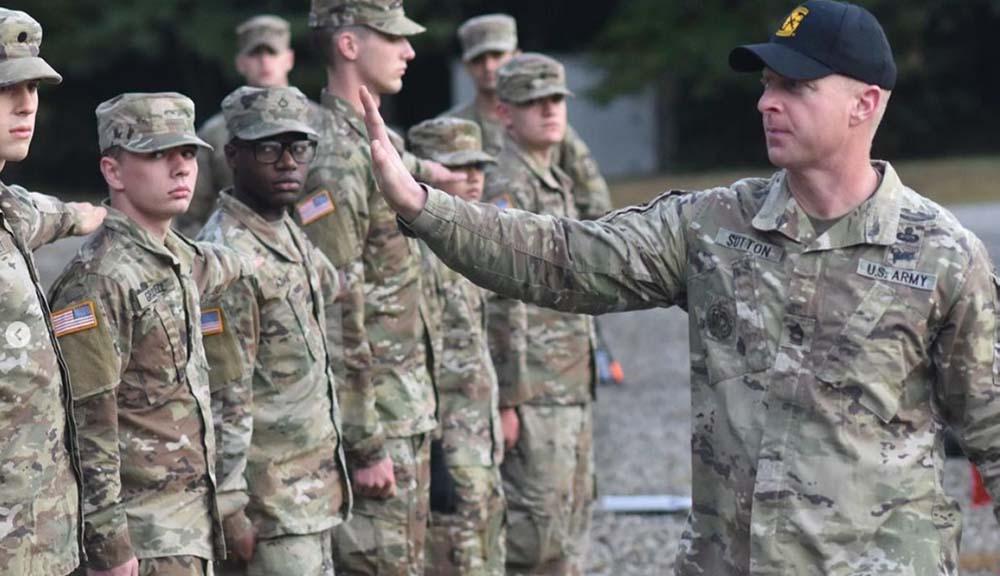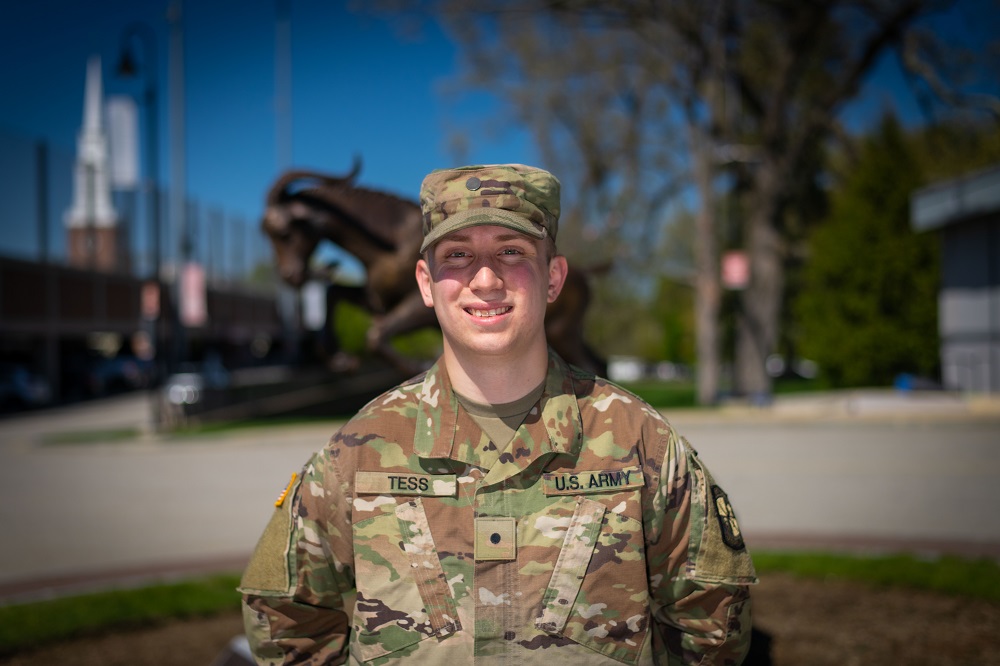ROTC (Reserve Officer Training Corps), programs aren’t just for incoming freshmen. Plenty of options are available—with more than financial support.
What’s really in it for you?
Far more than money. Though educational costs may be the spur for many students to begin ROTC it’s not what keeps them going.
Asked what word he would use to describe what he’d received from his ROTC experience, senior Michael Chadwick thought only for a second before he smiled and replied, “Leadership!” Chadwick values the opportunity ROTC brings to learn, then to actually lead his peers. Platoon and squad leaders, juniors and seniors here, were taught skills and built self-confidence in their first two years of Army ROTC cadet training.
Senior Marlisa (Cardoso) Overton, a former all-star cheerleader who has participated in the Ranger Challenge for three years, says that the gift of ROTC training is “the person it has made me into today.” While she believes character and work ethic are determined by the way a person is raised—and admits it was a relief to know her educational costs wouldn’t burden her family under the ROTC program—more important now is realizing she has become a “better version of myself.” Her time management skills improved in her freshman and sophomore years; Overton credits ROTC as a challenge that also helped her overcome normal college obstacles, with mentors and a community of support.
How do you balance studies and ROTC?
The program starts cadets out with workloads they can handle and builds up each term, bringing out critical thinking skills and the tools for success, as they study their chosen WPI courses. Often, a cadet’s major dovetails with the ROTC direction—a powerful experience. Overton reports working at good peer relationships with those not in the program, while also keeping a competitive edge to distinguish herself.
Once ready, in participants’ final two undergraduate years, they begin teaching others—possibly the best way to hone what they’ve learned, working with individuals and with the tools of leadership. During this time, many also decide on how to pursue graduate studies, and where they want to direct their lives and careers. ROTC can help with graduate school costs and ongoing training during service years.
The monetary aspect and requirements
Like the training, stipends increase through the college years (right now, freshmen receive $300 per month, and seniors are paid $500 a month). Individual allowances vary, but ROTC payment of WPI tuition and fees, plus book allowances and stipends, can add up to nearly $169,000 over four years. And that’s not counting the room and board allowances possible with prior planning.
It’s not a walk in the park. Requirements for ROTC include passing minimum physical and medical tests, and having a clear criminal record, U.S. citizenship, and a GPA of 2.5 or higher. The physical and psychological demands together build character and capability. There is a commitment (MSO, or Military Service Obligation) to serve in the Army Reserves, National Guard, or individual ready reserve.
See how you might benefit from ROTC—no matter what your year—at the office in Daniels Hall, or email the enrollment officer, Darryl Gill at dlgill@wpi.edu.


